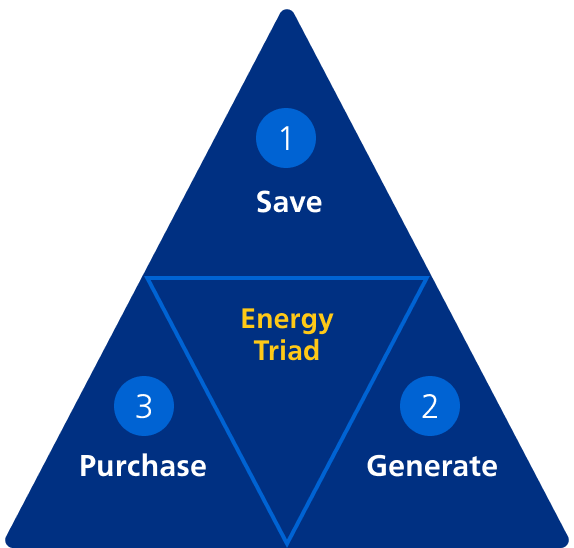Zero-emission enterprise

NS has offered climate-neutral transport services since 2020. Our next ambition is to achieve zero-emission operations by 2040. We will realise that ambition once we are able to use green energy at any moment without depending on energy from fossil sources at times when there is no wind. To that end, we save energy wherever we can, use our own lands and buildings to generate sustainable energy as much as possible and purchase our energy from zero-emission sources.
Saving energy
Over the past few years, NS has taken measures to become more energy efficient.
-
We apply energy efficiency as a key criterion in the replacement and renovation of trains, for example by making climate control systems on the trains more energy-efficient.
-
Capacity utilisation rates of our trains and buildings were high in pre-COVID-19 times. We are working hard to restore these levels.
-
Together with lessees at our stations, we are taking a range of energy-saving measures, such as more energy-efficient equipment and doors to close off cold storage sections.
-
Technical tools to help train drivers adopt energy-efficient driving practices.
-
We are conducting studies and developing road maps to reduce energy consumption by buildings and trains.
Sustainable generation of energy and ‘greening’ our real estate
NS uses its buildings and lands for the generation of sustainable energy. For example, in Amsterdam we have made land available for the Nieuwe Hemweg wind farm. This facility, which has been operational since July 2021, generates an output that can sustain over 10,000 households. We are now also making our stations, workshops, offices and other real estate ‘Paris proof’, i.e. minimising their energy consumption per square metre in order to make them comply with the Paris Agreement on Climate Change.
Purchasing zero-emission energy
In 2021, NS started preparations for a new traction energy contract that is to take effect in 2025. We held market exploration talks and organised a stakeholder dialogue in collaboration with several NGOs.
The new contract is one of the biggest energy contracts in the Netherlands, equalling 1% of the total Dutch energy consumption. The current contract with Eneco, which commenced in 2017, qualified as future-oriented at the time due to NS's requirement that the sustainable power should be generated by wind farms that had not yet been built (the additionality principle). However, when there is no wind our trains still run on back-up capacity from fossil sources. At present, we depend on this back-up capacity for approximately 40% of the number of hours concerned. In partnership with Eneco, NS examined ways to reduce this percentage using demand-side management, generation management and storage. In a pilot project it was determined that an optimum mix of wind and solar energy would reduce NS's dependence on fossil back-up capacity to approximately 30% of the hours concerned, compared with 40% based on wind-only sources.